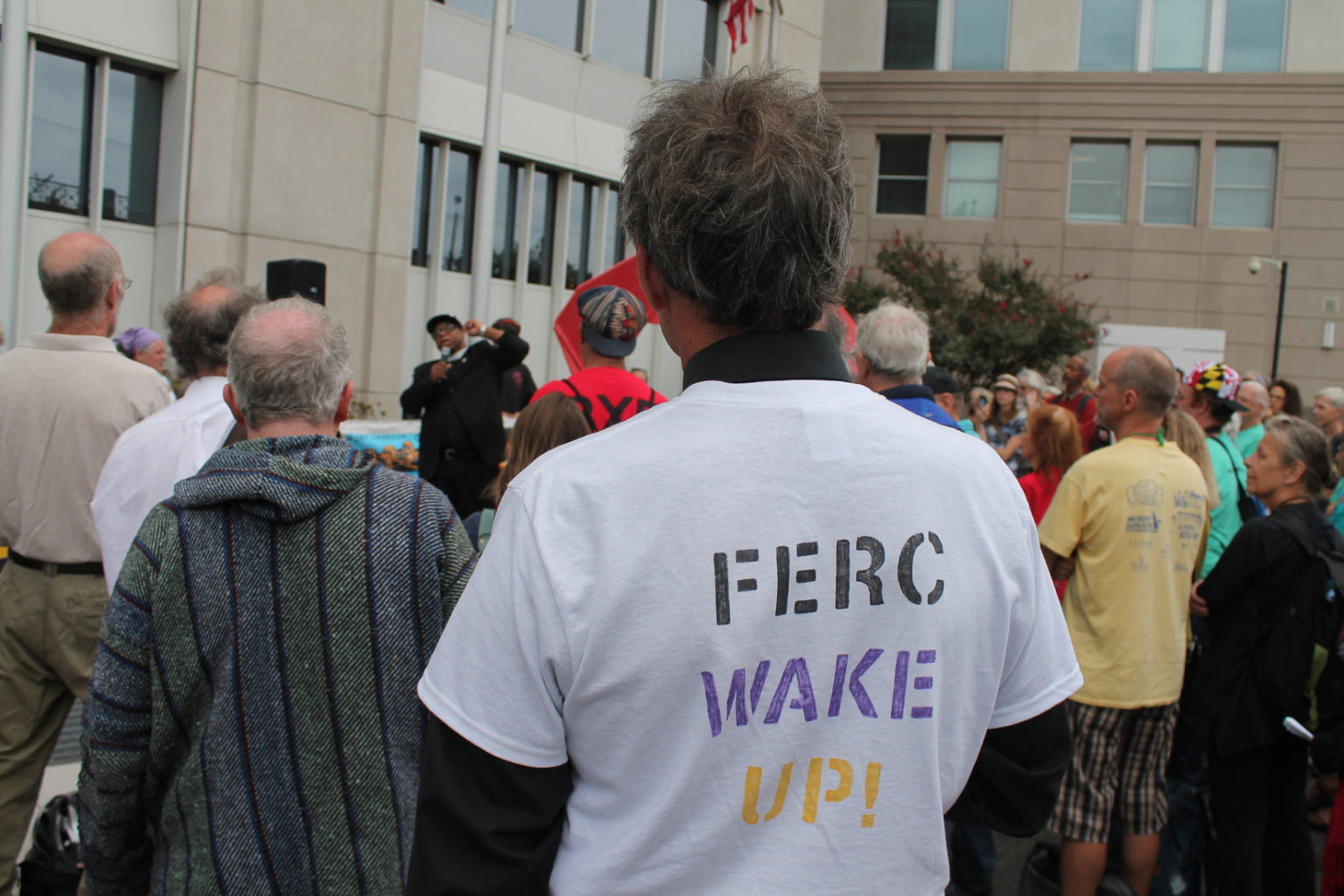The Federal Energy Regulatory Commission (FERC) has approved the construction of a new gas pipeline project, despite an ongoing inquiry by two U.S. senators into a possible conflict of interest in its environmental review.
On Wednesday, FERC authorized Spectra Energy to build its Atlantic Bridge project, one of several recent upgrades to its Algonquin pipeline in the U.S. Northeast. The ruling is conditional on the approval of the project by the National Oceanic and Atmospheric Administration’s Office of Coastal Zone Management, which is expected to finalize a decision by August this year.
Questions About the Review Process
Yet FERC’s crucial greenlighting of Atlantic Bridge comes as the project, which includes a gas compressor station in Weymouth, Massachusetts, remains under scrutiny by Massachusetts Senators Elizabeth Warren and Ed Markey following revelations by DeSmog about a possible conflict of interest in the environmental review process.
“With this decision, FERC continues to ignore the safety concern of Weymouth residents,” Sen. Warren told DeSmog. “The agency also has not answered my questions about conflicts of interest in the permitting process. To be clear: this compressor has more to do with pumping gas north for export to distant markets than with helping Massachusetts residents. FERC works for the people, and we need to keep fighting to force them to prioritize safety of our working families over industry profits.”
The third-party contractor that assisted FERC in the project’s environmental assessment, Natural Resource Group (NRG), had been working simultaneously for Spectra on a related project, the proposed PennEast Pipeline. Internal FERC documents show that when hired by the commission to review Atlantic Bridge in early 2015, NRG did not disclose its work on PennEast. Since PennEast is planned to connect to Algonquin and enhance its capabilities, NRG may thus have had an interest in the approval of Atlantic Bridge.
These revelations prompted Warren and Markey to send three inquiries in recent months to FERC Chairman Norman Bay, demanding answers about the project and FERC’s general vetting procedures of third-party contractors. The senators called on FERC to issue a new and objective review. Bay has yet to respond to their most recent letter, which raised further concerns about conflicts of interest.
In their written authorization of the Atlantic Bridge project, FERC Commissioners Norman Bay, Cheryl LaFleur, and Collette Honorable included a response to the conflicts of interest charge. The three repeated their earlier claim to Senators Warren and Markey that in hiring NRG, FERC’s staff followed its own guidelines for vetting contractors. Based on disclosures provided by NRG, staff found no conflicts. The commissioners continued to quote NRG’s own words stated in its original disclosure form, where it admitted it was working at the time for Spectra Energy on “various expansion projects and pipeline operations and maintenance programs.”
Yet this statement cannot encompass the work NRG provided for Spectra as a member of the PennEast Pipeline consortium. For one, because PennEast is still on the drawing boards and has yet to be built, it cannot either be considered an “expansion project” or a “pipeline operations and maintenance program,” as these refer to existing pipelines. Second, NRG provides PennEast with public affairs and stakeholder outreach services, which differ from the stated “pipeline operations and maintenance programs” in NRG’s disclosures.
A passage from FERC’s authorization to construct the Atlantic Bridge project. Though FERC quotes NRG’s disclosure, the description does not encompass the contractor’s work for PennEast.
Project Opponents Vow to Fight On
One of the main points of contention surrounding the Atlantic Bridge pipeline project is the construction of a natural gas compressor station in the town of Weymouth, Massachusetts. The station has faced fierce opposition from residents and local leaders, who are concerned about potential negative health and environmental impacts in an area already burdened by heavy industry and power generation.
“We are grossly disappointed in FERC‘s decision,” says Alice Arena, a Weymouth resident and leading activist with the citizens group FRRACS (Fore River Residents Against the Compressor Station). “We have been expecting some action from FERC, but were stunned to receive the conditional order without a public meeting on the vote. We have been watching the FERC monthly meeting agendas and have not seen the Atlantic Bridge under discussion.”
Arena claims that “FERC’s ethical issues with the conflicts of interest continue unabated and should have been taken far more seriously by the agency when reviewing this and other projects. FERC is thumbing its nose at Senators Warren and Markey by ignoring their requests for further inquiry.”
FRRACS activists say they will continue to oppose the project through all avenues possible, including “in the streets.”
The Mayor of Weymouth, Robert Hedlund, announced on Wednesday evening that the town will appeal FERC’s decision to the agency itself.
Main image: A protester at a September 2015 Beyond Extreme Energy (BXE) rally against new fossil fuel project permits at the Federal Energy Regulatory Commission (FERC). Credit: Elvert Barnes Protest Photography, CC BY–SA 2.0
Subscribe to our newsletter
Stay up to date with DeSmog news and alerts







